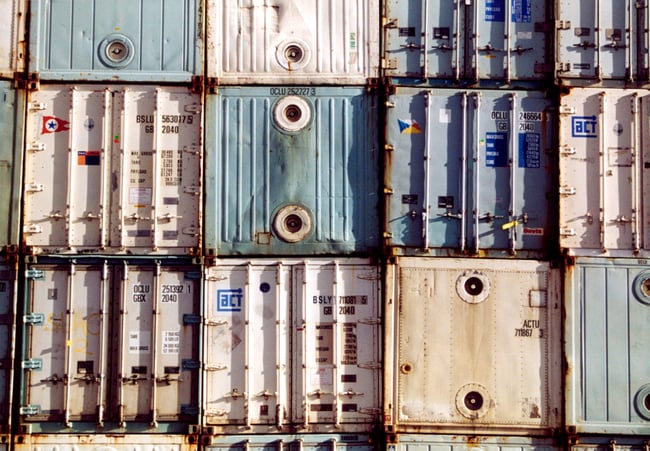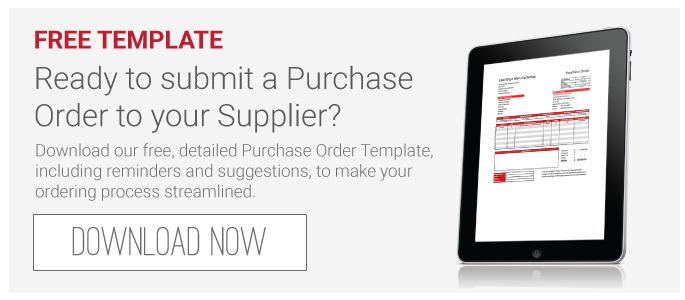Less than Container Load (LCL) shipping (also called groupage) get lots of grief, but it can save you from time to time, especially when you don't have enough goods ready to ship a Full Container Load (FCL). If you find yourself in an FCL vs. LCL situation, review the following benefits and risks and apply them to your particular scenario – and don't be too quick to give LCL the cold shoulder!

The Benefits of LCL
It's an alternative to air freight. If you have a low-volume order that is also time-sensitive, LCL is an excellent option if you don't have the funds (or the stomach) to pay the high costs of air freight. LCL allows you to ship lower volumes and fulfill smaller, custom orders at a lower cost than air freight. And there are even expedited LCL options – read more below.
Meet tight deadlines. While shipping FCL is more cost effective in the long run, it may be worth the premium to ship LCL to avoid waiting to fill a container, especially if you have a tight deadline to meet. LCL can also help meet promotional deadlines for new products while avoiding the much higher expense of air freight.
Maintain lean inventory. Some buyers favor LCL shipments over FCL because they lack the physical storage capacity or cash flexibility to hold large amounts of inventory. With the help of LCL, you can ship smaller batches of product and keep your inventory lean. Some facilities manage Just-in-Time (JIT) inventory programs that often rely on LCL to maintain low stock levels.
Enjoy increased flexibility. LCL offers shippers flexibility in various ways. For example, smaller orders can be produced and shipped without the pressure of filling containers or incurring the cost of air freight, which allows for reduced minimum order quantities (MOQ) that may appeal to customers. LCL is particularly useful for companies that offer a wide product mix and change their offerings frequently, as LCL allows them to ship smaller quantities and avoid a heavy inventory situation and the threat of product obsolescence if goods turn more slowly than anticipated.
Book on expedited services. One of the main complaints about LCL shipments is their long (or at least, unpredictable) transit times. There are expedited services that remove that concern. Some services will even guarantee arrival at the port of discharge by a specific date (!!), which is very rare in the global logistics arena. This is an exciting advancement in the world of LCL shipping.
The Risks of LCL
It wouldn’t be fair to only mention the benefits of LCL shipments. There are definitely some risks involved when shipping LCL, so keep the following considerations in mind as you plan.
Goods could get damaged. Because your goods will be consolidated with other mystery items, palletizing is the safest approach. If shipping loose cartons, reinforce packaging to prevent damage – this could mean extra dunnage inside cartons and corner reinforcements, or shipping delicate goods in sturdy crates rather than cardboard boxes. Since goods are consolidated at port (sometimes manually loaded into the container) and then unloaded and sorted upon discharge, reinforcing boxes or pallets is a must, as additional handling means increased risk of damage.
It costs more than FCL. To clarify: your total bill may not be higher than shipping goods on a 40' container, but the freight cost per unit is higher than FCL. Part of this higher cost is a premium you pay to ship a smaller volume and the extra handling of consolidation pre-sailing and deconsolidation upon arrival at port. Additionally, many fees are fixed whether the shipment is LCL or FCL. So while your ocean freight rate is lower than it would be if shipping FCL, your fees (ISF, customs clearance, PierPass and other destination fees) may be fixed, which will increase the freight cost per unit. Don't forget to factor in the cost of extra packaging (pallets, reinforcements, etc.) and the effect these packaging materials will have on your total order volume.
It usually takes longer. The very nature of LCL (consolidation of several shippers' goods, processing multiple sets of documents per container, sorting goods per customer upon unloading) lends itself to longer transit times. While LCL has a reputation for uncertain, unpredictable or generally long transit times, this is not always the case. Ask your freight forwarder to confirm the vessel's sailing schedule, and ask if there are any transshipments along the way that could cause delays. Confirming the final destination ETA upon booking confirmation is always wise. It's better to know what you're in for at the start than to find out once you have no control over the situation. There are many different LCL services available now (like the expedited services mentioned above), so find out what your options are when booking a new shipment.
You must relinquish control. As a self-proclaimed control freak, I know this can be a difficult thing to do. Here's the deal: you don't know what else is in the container with your goods, and that's just the way it is. You have to hope the other shippers filled their paperwork out properly so there are no customs holdups upon arrival, because each container is treated as one unit, whether goods belong to one shipper or 10 shippers. Our advice? Make sure YOU aren't the source of customs delays by properly completing and submitting paperwork (and using the correct duty code for your goods) by the closing date before sailing.
When Should You Consider Shipping LCL?
As a general rule, use the following criteria when you find yourself in an FCL vs. LCL situation:
|
Order Volume
|
Action
|
| 1 - 8 CBM | Ship LCL |
| 8 - 15 CBM | Request LCL and 20' FCL quotes |
| 15 - 28 CBM | Ship 20' FCL |
| 28+ CBM | Ship 40' or 40'HC FCL |
CBM = Cubic Meters
Our Advice
- Complete necessary paperwork by deadline
- Use extra reinforcements or pallets for LCL shipments
- Confirm the sailing schedule so there are no surprises
- Ask about expedited LCL services if you are in a time crunch
- Compare FCL vs. LCL costs for shipments that are “on the line”
- Clearly label your packages for LCL to avoid confusion
- Book LCL shipments with a freight forwarder you trust




.jpg?width=176&height=56&name=MR_associatedNetwork_logo%20(1).jpg)